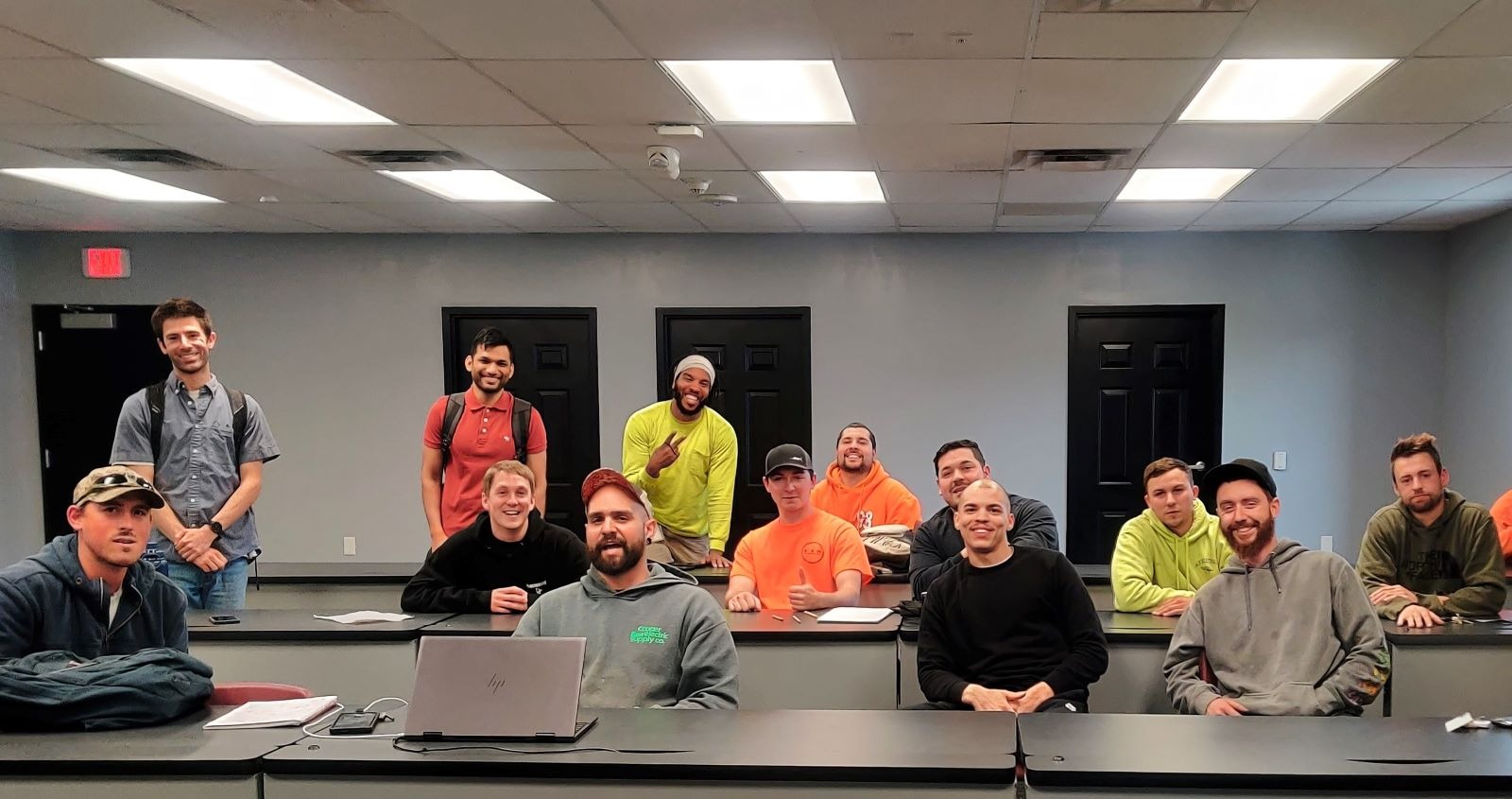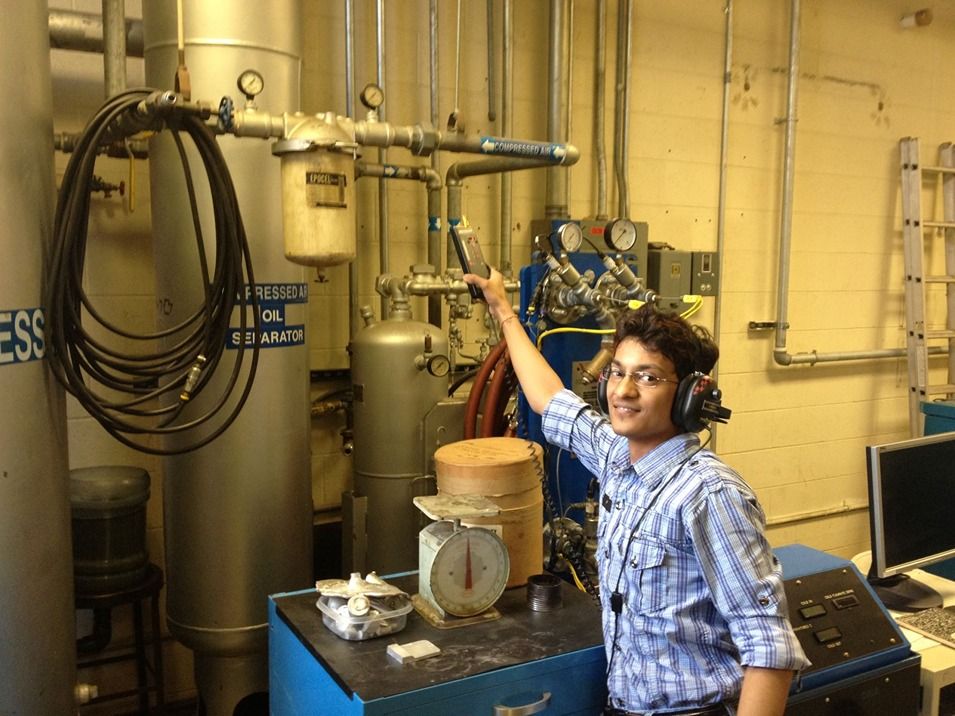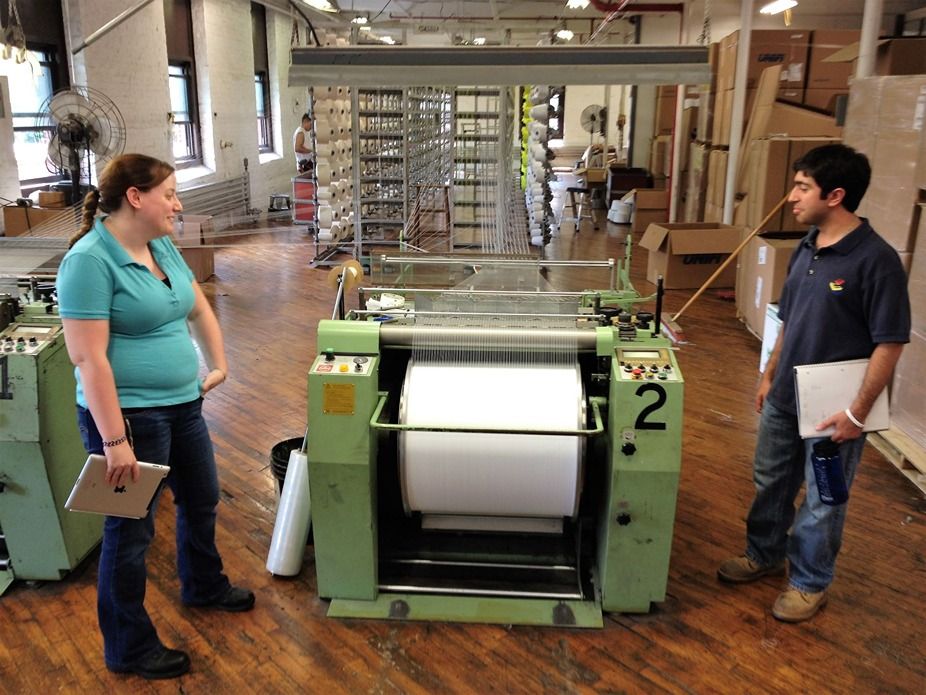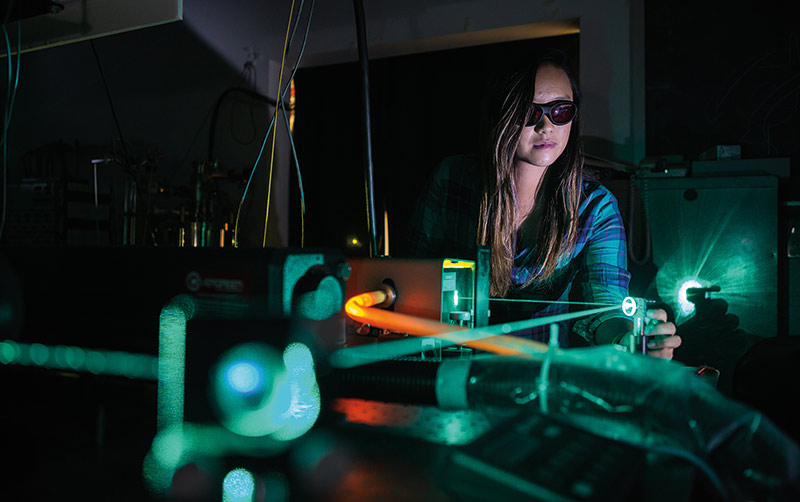
Pictured: Justin Caspar ’19 (gray shirt and backpack) and Abhinay Soanker '15G (red polo and backpack) attending a recent training during an energy efficiency training session specifically organized by the Lehigh IAC for students enrolled in the apprentice program of the International Brotherhood of Electrical Workers (IBEW) Local#375. This training session took place in early May of this year.
The Lehigh University Industrial Assessment Center (IAC) will expand into the Mid-Atlantic Regional IAC Center of Excellence (MARICE) with newly awarded funding from the U.S. Department of Energy (DOE).
 Lehigh’s IAC was established in 2001 as part of the DOE’s nationwide Industrial Assessment Center Program to save energy, reduce waste, and enhance productivity for manufacturing plants in Pennsylvania, New Jersey, and New York. The center, which was most recently renewed in 2021, is led by mechanical engineering and mechanics (MEM) faculty Professor Alparslan Oztekin and Professor Emeritus Sudhakar Neti.
Lehigh’s IAC was established in 2001 as part of the DOE’s nationwide Industrial Assessment Center Program to save energy, reduce waste, and enhance productivity for manufacturing plants in Pennsylvania, New Jersey, and New York. The center, which was most recently renewed in 2021, is led by mechanical engineering and mechanics (MEM) faculty Professor Alparslan Oztekin and Professor Emeritus Sudhakar Neti.
The new $3.75 million grant stems from the Bipartisan Infrastructure Law. It creates regional IAC centers of excellence to help establish pathways to high-quality jobs, improve manufacturing competitiveness, and reduce industrial emissions. The funding will be split between Lehigh and West Virginia University (WVU) over the next five years.
“Lehigh’s IAC has long provided energy audits for small- to medium-sized plants to make them more competitive while simultaneously providing real-world training for our students in conducting those audits,” says mechanical engineering PhD student Abhinay Soanker ’15G. He and fellow MEM PhD candidate Justin Caspar ’19, served as lead students on the Lehigh IAC team and co-wrote the proposal that secured the funding. “One of the major components of our proposal was that we wanted to go beyond Lehigh to train the students and professionals who might not have access to resources like these.” The Lehigh-IAC currently supports six PhD students, and with this new award, the number of PhD IAC students will increase by more than three.
Soanker says that idea aligns with the federal government’s Justice40 Initiative, which addresses historical underinvestment in disadvantaged communities.
 Soanker contacted local organizations such as trade schools, community colleges, labor unions, nonprofits, and chambers of commerce for their support. The MARICE team, including Soanker and Caspar, will use the DOE funds in part to conduct training sessions with these groups in areas such as energy efficiency, sustainability, variable frequency drives, HVAC systems, and building management systems. The goal is workforce development in underserved communities.
Soanker contacted local organizations such as trade schools, community colleges, labor unions, nonprofits, and chambers of commerce for their support. The MARICE team, including Soanker and Caspar, will use the DOE funds in part to conduct training sessions with these groups in areas such as energy efficiency, sustainability, variable frequency drives, HVAC systems, and building management systems. The goal is workforce development in underserved communities.
“We want to train our students to conduct these assessments to provide value and competitiveness to these plants,” says Caspar. “The skills they learn can help these companies reduce their operating costs by reducing their energy consumption, and depending on the size of the plant, that can add up to tens of thousands of dollars.”
And when those industries are located in disadvantaged areas, the savings can trickle down into the communities themselves, says Soanker.
“Lehigh’s IAC already has a track record of serving industries in these communities,” says Caspar. “They made up about 33 percent of our audit visits last year. So with this grant, that’s a metric that we’re looking to improve—to enhance the community benefits and the carbon and energy savings associated with the center.”
Partnering with the West Virginia University IAC will enable the two institutions to cover the mid-Atlantic region, strengthening their mutual impact.
The grant will also enable Lehigh’s IAC to develop additional tools to measure energy use and calculate savings. For example, older companies that aren’t fully equipped with control systems can’t make instant changes based on production requirements, so they often waste money running equipment they don’t need.
 “They might have been configured for one specific production rate 30 years ago,” says Caspar, “but things change, and now they need to run their equipment at 75 instead of 100 percent—but they can’t do that. So we must look more into the various tools to help them get there. Of course, the center has been addressing these problems all along, but we can do that much better with the additional support. Because in the end, the energy consumption needs to match the output of the production process.”
“They might have been configured for one specific production rate 30 years ago,” says Caspar, “but things change, and now they need to run their equipment at 75 instead of 100 percent—but they can’t do that. So we must look more into the various tools to help them get there. Of course, the center has been addressing these problems all along, but we can do that much better with the additional support. Because in the end, the energy consumption needs to match the output of the production process.”
Those tools will include building, thermal, and production management system components—think smart thermostats, lighting control panels, heating and cooling algorithms, variable loads, and retrofits. They’ll also include virtual energy assessments that generate recommendations automatically based on a questionnaire and how to obtain rebates related to energy-efficient upgrades.
For Soanker and Caspar, who’ve both been involved with Lehigh’s IAC throughout their graduate studies and have conducted nearly 200 assessments between them, the grant has validated the critical work the center has been doing for decades: real-world teaching skills, making local industries more efficient, helping communities prosper, and reducing carbon emissions. With the MARICE designation, that impact will grow stronger.
“It means so much to me to know that we’re going to be developing a workforce that goes beyond the university,” says Soanker, “and will directly affect communities across the mid-Atlantic.”
Related Links:
- Lehigh University Industrial Assessment Center
- Faculty Profile: Alparslan Oztekin
- Justice40 Initiative
Department/Program:
- Article: "Biden-Harris Administration Announces $72 Million to Expand Pathways to Clean Energy Jobs"
- Article: "Lehigh's Industrial Assessment Center receives DOE support"
- Article: "Industrial Assessment Centers - Centers of Excellence - Project Factsheets"
- Article: "Statler College Receives Funding to Support WV Manufacturers and Train Workforce"

